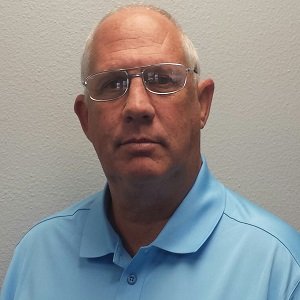Coastal and tropical areas present their own unique challenges for business and residential HVAC units. For these machines, which we use to create comfortable, safe air for occupants, corrosion is enemy number one in high moisture environments.
Due to the high level of moisture and salts in the air along the coast, HVAC solutions are more susceptible to corrosion. These salts can negatively impact unprotected coil fins and metal surfaces, causing them to corrode, which can ultimately lead to system failure. Humidity combined with salts in the company of dissimilar metals can lead to galvanic corrosion as well.
Residential HVAC units
Finding ways to address these challenges is paramount for both businesses and residents located in coastal climates. HVAC units are essential when creating clean air and enhancing indoor air quality and indoor environmental quality. If these systems were to fail, there is an increased risk of airborne pathogens and uncomfortable breathing conditions. Protecting the components within the HVAC unit is vital.
Protective coil coatings provide one of the best solutions and barriers against corrosive agents
While corrosion is less likely for HVAC systems operating more inland, there are options available for their coastal counterparts. Protective coil coatings provide one of the best solutions and barriers against corrosive agents. Two options for applying coil coatings include OEM factory e-coats and spray-applied coatings. While both provide an excellent defense against corrosive agents, they have their differences.
Indoor air quality
Factory e-coats are best applied prior to the initial installation. E-coats, such as the ElectroFin® E-Coat, are applied in specialized facilities that submerge the coils in a series of process tanks. This allows for 100% penetration and uniform deposition no matter how thick the heat exchanger is or how densely packed it is. As part of the process, electro-disposition coating occurs where epoxy paint particles are evenly suspended in deionized water.
Once the paint particles bond with the conductive metal surfaces of the heat exchanger, an impact-resistant e-coat is formed to create a defense against corrosion. When looking at HVAC units that need to be coated on an aftermarket basis, spray-applied coatings provide excellent protection with the added advantage of being applied post manufacturing. Coatings for larger jobs should specify aftermarket coatings similar to the Insitu® Spray Applied Coating.
Providing excellent protection
This product uses a robust synthetic multi-polymer resin backbone
This coating process is both cost-effective and provides a long-term solution against corrosive agents and can also include anti-microbial properties. Using water-based synthetic flexible polymer anti-corrosion coatings, the Insitu® Spray Applied coating can withstand the harshest of environments while providing three to five times longer operational life than uncoated systems.
Aftermarket products are also available for smaller jobs. Products like the GulfCoat® Coil Coating protects an HVAC unit’s components, coils and cabinet thanks to its improved corrosion resistance. This product uses a robust synthetic multi-polymer resin backbone. This type of aftermarket product addresses coastal corrosion on applications such as heat exchanger coils, mini-splits, condensing units, modular air-handlers, air-cooled chillers and more small applications.
Maintaining Protective Coatings
While protective coatings address the unique challenges of increased corrosion presented by coastal environments, it is just as important to protect the coating investment. Many times there is a failure with the coating or coils, it’s because the owner did not take the proper steps to ensure the components were serviced or cleaned regularly.
Coil cleaners and salt reducers should also be limited to help protect the integrity of the coating
By cleaning the coating every six months, it will help ensure it delivers optimal protection against corrosive agents. It’s paramount to avoid using high-pressure washers when cleaning the coils as well because this can damage the fins and protective coating. Coil cleaners and salt reducers should also be limited to help protect the integrity of the coating. Taking these small steps will help ensure your HVAC unit remains operational and efficient by protecting it against corrosion.
Delivering optimal protection
Daniel Fisher is the director of sales for Modine Coatings. Modine Coatings is a division of Modine Manufacturing Company. At Modine, we are engineering a cleaner, healthier world. Building on more than 100 years of excellence in thermal management, we provide trusted systems and solutions that improve air quality and conserve natural resources.
More than 11,000 employees are at work in every corner of the globe, delivering the solutions our customers need, where they need them. Our Climate Solutions and Performance Technologies segments support our purpose by improving air quality, reducing energy and water consumption, lowering harmful emissions and enabling cleaner running vehicles and environmentally friendly refrigerants. Modine is a global company headquartered in Racine, Wisconsin (USA), with operations in North America, South America, Europe and Asia.

